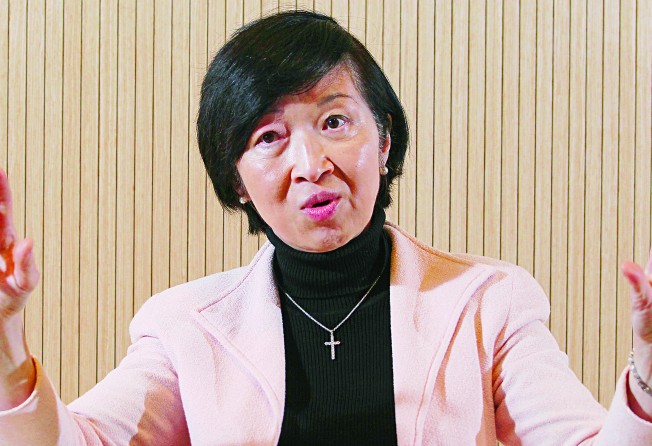More ‘inclusive’ platforms needed for policy discussion: former education chief
Executive councillor Fanny Law Fan Chiu-fun says the city’s system of advisory committees is not effective and the younger generation want their voices heard

An executive councillor has called for the setting up of platforms to involve interested parties, officials and members of the public, particularly young people, to discuss pressing issues and forge consensus on policy proposals.
Fanny Law Fan Chiu-fun – who was education chief from 1998 to 2006 – said the establishment of “inclusive platforms” where evidence-based discussion on policies could be conducted, was badly needed as the city’s system of advisory committees was not effective in forging consensus on long-term issues.
In a recent interview with the Post, Law said Hong Kong faces the same problems that plague the US and UK, such as conflict between the rich and the poor, as well as lack of social mobility.
“We must give the people of Hong Kong hope and engage them, so that they will know what opportunities they have,” Law said.
“People, particularly the younger generation, want to have their voices heard in the decision-making process. They don’t think the existing system of advisory committees – whose members are appointed by the government – and commissioning consultancy studies can make their voices heard.”
But a spokesman for the Home Affairs Bureau insisted the operation of advisory and statutory bodies is generally smooth and efficient.
Law suggested setting up platforms to involve more stakeholders to discuss issues like housing and constitutional development.
“The government can provide statistics and data to ensure an evidence-based discussion,” she said. “People joining the platform will strive to reach consensus on policy issues and come up with feasible proposals.”
Law said leaders with no vested interests in the relevant policy area but who were willing to devote time, were ideal candidates to serve as facilitators of discussion.
She added that the platform to discuss the proposals for education reform during her time was a good example of involving different stakeholders in the public engagement process.
“We held numerous forums and seminars to narrow the differences among stakeholders. The public engagement process worked quite well,” she said.
Law suggested setting up a platform similar to the Basic Law Consultative Committee in the mid 1980s, to review the models of political systems in other countries.
“People joining the platform can discuss the best way forward for Hong Kong’s constitutional development,” she explained.
Outgoing Legislative Council president Jasper Tsang Yok-sing had also suggested last year that the next chief executive in 2017 should set up a platform to discuss the future of “one country, two systems” after 2047, and how to relaunch the electoral reform process.
Currently about 4,100 members of the public have been appointed to serve on some 470 advisory and statutory bodies.
A bureau spokesman said: “We review from time to time the operation of the advisory and statutory bodies system and take appropriate measures to improve the mechanism and operation after review.”
He added: “To gauge a wide range of public views, when appointing members to serve on these bodies, the government will enlist people of different background and experience.”